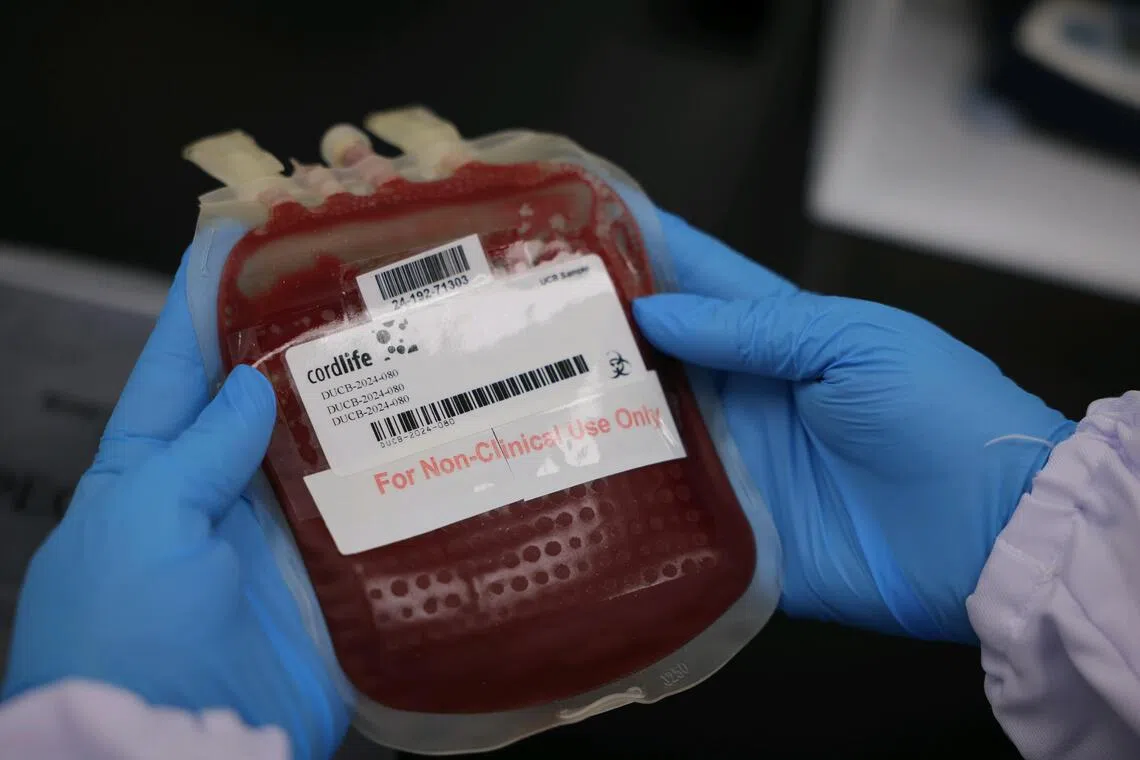Cordlife shares sink 17% as cord blood bank faces potential one-year suspension
Sign up now: Get ST's newsletters delivered to your inbox

Cordlife warned that if the suspension proceeds, its ability to continue as a going concern may be at risk.
PHOTO: ST FILE
Follow topic:
SINGAPORE – Shares of Cordlife Group tumbled when they resumed trading on Oct 2, a day after the cord blood bank announced that it had received a notice from the Ministry of Health (MOH) stating its intention to suspend the company’s cord blood banking license
In a filing late on Oct 1, Cordlife said it is seeking advice but warned that if the suspension proceeds, its ability to continue as a going concern may be at risk. It cited ongoing operating expenses, potential refunds, customer payment uncertainty, and possible fines or legal claims.
Cordlife shares closed down 17.2 per cent, or 3.7 cents, at 17.8 cents on Oct 2, after falling as much as 18.1 per cent.
The latest suspension comes as a result of multiple regulatory non-compliances
According to the company’s regulatory filing on Oct 1, MOH found regulatory lapses across key operational areas, including quality management, risk assessment, incident reporting, supplier oversight, and documentation controls, resulting in the suspension.
The ministry also directed Cordlife to replace its clinical governance officer, maintain all existing cord blood units (CBUs) stored with the company unless they are retrieved for clinical use or transfers, but only release them after the CBUs have been reviewed and assessed as suitable by a qualified haematologist.
In addition, Cordlife must retrospectively review all 160 CBUs collected since Jan 14, disclose any non-conformances to affected mothers, and implement remedial action.
The company has 14 days to respond to MOH’s notice.
Cordlife was first suspended for six months in November 2023, when MOH checks confirmed lapses in the storage temperature of its CBUs. The company was allowed to resume operations from Sept 15, 2024.
However, additional testing on the affected CBUs recently showed that samples from three compromised storage tanks did not meet the MOH’s criteria for viability and potency, according to an MOH statement on Sept 29.
MOH has since ordered a full investigation, as Cordlife has been unable to identify a definitive cause for the failure.


